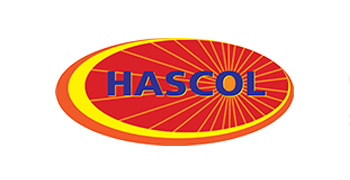Karachi September 2 2022: Hascol Petroleum Limited has been in discussions for a restructuring of the debt with the major lenders for the majority of 2022.
“Though the plan has not been finalized, the company has discussed the plan with the banks and now believe there is a way forward with restructuring of the PKR 54bn debt with the banks and the major shareholders and the company.” says Company Chief Executive Officer Aqeel Ahmad Khan.
“The board firmly believes that subject to the approval of restructuring plan with major banks the Company will have sufficient liquidity to continue its operations and achieve its potential.” says company Chairman Alan Duncan.
In order to address the liquidity issues, the company has carved out a Restructuring plan, which will not only overcome these issues but ensure that the Company regains its lost market share and profitability. A brief outline of the proposed Restructuring plan is as follows covering the total outstanding loans of Rs. 54.247 Billion due to banks and financial institutions.
Restructuring plan includes (a) conversion of PKR 20bn into long term loan with a grace period and concessionaire interest charges, (b) reinstatement of Working Capital Lines for at least PKR 20 Billion to support the company’s oil import, (c) settlement of Rs. 14-15 Billion worth of banking loans at Net Present Value of the long term loan option with upfront payments, and (d) timely repayments of various finance leases.
The above plan requires injection of approximately PKR 17 billion which shall cover the total exposure due to banks and all loans will be regularly paid, activated and settled. The major shareholder will also continue to provide working capital support to the business subject to the restructuring plan being approved.
The Board has considered the debt restructuring plan and approved the process intended to be followed by the Company for implementing the same i.e. through a Scheme of Arrangement to be presented to the High Court of Sindh at Karachi under Section 279-282 of the Companies Act 2017 (“Scheme”).
Upon successful implementation, the Company will have a distinct competitive advantage over its competitors and will ensure a turnaround to achieve one of the top three positions in the oil marketing sector as was the case in the past.
The earning potential of the Company will further be accelerated given the upward revision in regulated margins on the industry by the Government of Pakistan.
The Government has taken a number of initiatives aimed at reducing the volatility for the OMCs and improve their business environment. These measures include revision in pricing formula, foreign exchange cover for the OMCs and revision in margins.
Considering the cost of business and to provide a fair return on investment, Government has further increased the Dealers margins and is in the process to increase OMC margins. Revision in both margins will improve the profitability of the company as Hascol operates company operated sites. Turnover tax has been reduced from 0.75% to 0.5%. In order to reduce the price volatility in market, Government is planning to implement weekly pricing mechanism. With an objective to encourage competition, Government is planning to deregulate the OMC sector. Company believe that the above regulatory changes and deregulation will have positive impact on the business of the company.
In 2021, Hascol went through a transition phase focusing on aspects that it could control pre-finalization of restructuring such as optimal/efficient buying of product, operating costs, debt collections resulting in transitioning the company from a EBITDA negative company in 2020 to one with positive EBITDA in 2021 even at low volumes through its core business of marketing of petroleum products. Credit support from Company’s single largest shareholder helped the company continue its business operations and survive despite shortage of working capital.
Hascol’s new management has been working tirelessly in coordination with the Board to restore the company to profitability. The Board has been actively engaged in enforcing best corporate practices and managing the key risks associated with this business.
It would be observed that the Company carries the capacity to generate cash profits at nominal volumes. Given higher volumes, the potential of earnings is a good multiple of what it is today. There are several risks faced by the company inherent to the industry itself, however, the main challenge for company is the interest cost and financial charges accrued on the overdue loans and the non-availability of working capital banking facilities.
These, together with operational bottlenecks and unpaid non-banking creditors create operational obstacles to the company’s growth and profitability.
The Board of Directors (the board) has carried out a detailed review of the profitability and cash flow forecast of the Company for the twelve months from the date of approval of these unconsolidated financial statements, which took into account the projected future working capital of the Company under the restructuring plan taking into account the upward revision in company as well as dealer margin.










